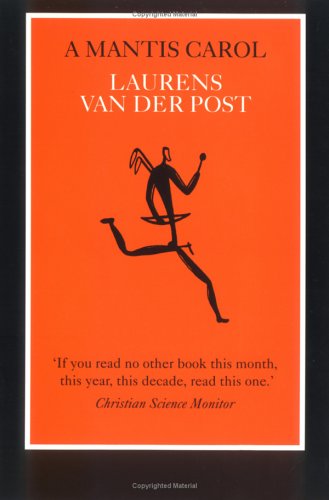Vintage classics
3 total works
The whole of A Far- Off Place is charged with the power and magic and beauty of Africa. Driven with appalling violence from his home by "freedom fighters" Francois Joubert, a boy about to become a man, who is deeply learned in the life and ways of the bush, embarks on a long and terrible journey. He is accompanied by Nonnie, the young daughter of a retired colonial governor, murdered by the terrorists, Xhabbo, a dearly beloved Bushman whom Francois had once saved from death, and Xhabbo's wife, Nuin-Tara. Every effort is made by the attackers, swarming everywhere in the bush, to prevent the little foursome, sole survivors and witnesses of the brutal massacre of Europeans and their Matabele partners, from reaching the outside world. The sustained ferocity of the pursuit appears only too likely to overwhelm them, for Francois and Nonnie have only their own aristocratic spirit and faith in each other, the native skill of Xhabbo and Nuin- Tara and the courage and intelligence of the noble hunting dog, Hintza, to help them against the most fearful odds. Not only the bush but also a great desert of a thousand miles of sand and scrub lies between them and any hope of safety.
Yet the manner in which this little band and one dog take on this great adventure, turns it into something of a pilgrimage. Through their physical suffering and almost unbearable agony of heart and mind, they achieve both an unimagined knowledge of the resources of their bodies, and far more important still, find an inner way to an understanding of man's proper place in the natural universe - an acceptance of the right of every living creature to exist alongside him. As a result, whatever the tragedy and disaster of the story, the travail and traffic of their young lives reach out beyond fear and darkness towards an intimation of concord and light. In contrast to the profound understanding of the land and its birds and animals implicit in the characters of each of the imperiled foursome, the "freedom fighters", promising life, bring only death and in the name of liberty do mortal injury to the innermost spirit of Africa. A Far-Off Place, though complete in itself, accomplishes with A Story Like the Wind, a unique voyage of discovery into a hidden and hitherto unrecorded core of Africa.
Not least of its by-products is an insight into what is committed in that vast continent in the name of liberation and independence.
Yet the manner in which this little band and one dog take on this great adventure, turns it into something of a pilgrimage. Through their physical suffering and almost unbearable agony of heart and mind, they achieve both an unimagined knowledge of the resources of their bodies, and far more important still, find an inner way to an understanding of man's proper place in the natural universe - an acceptance of the right of every living creature to exist alongside him. As a result, whatever the tragedy and disaster of the story, the travail and traffic of their young lives reach out beyond fear and darkness towards an intimation of concord and light. In contrast to the profound understanding of the land and its birds and animals implicit in the characters of each of the imperiled foursome, the "freedom fighters", promising life, bring only death and in the name of liberty do mortal injury to the innermost spirit of Africa. A Far-Off Place, though complete in itself, accomplishes with A Story Like the Wind, a unique voyage of discovery into a hidden and hitherto unrecorded core of Africa.
Not least of its by-products is an insight into what is committed in that vast continent in the name of liberation and independence.
A New York psychoanalyst and a Kalahari Bushman inspire the author to an exploration of primitive consciousness and the modern unconscious and their common promptings and imponderables.
This is a story of an almost vanished Africa; a world of myth and magic in which the indigenous peoples of the continent lived for uncountable centuries before the Europeans came to shatter it. The main character is a boy who has a relationship with this Africa not unlike Kipling's Kim with the antique world of India. Francois Joubert, whose Huguenot ancestors settled in Africa three hundred years ago, lives as a solitary child on his father's farm. 'Hunter's Drift'. Here, in the far interior of Africa, he experiences the wonder and mystery of an ageless, natural primitive life, his perception of it heightened by the influence of three people in particular - his Bushman nurse, the head herdsman of the local Matabele clan (his father's chosen partners in the pioneering of Hunter's Drift), and a hunter of legendary fame, now the chief ranger of a vast game reserve nearby.
Francois' meeting with an untamed Bushman, Xhabbo, whose intuitive teaching nourishes his spirit; his strange pilgrimage to the distant krall of a powerful witch-doctor; his dramatic encounter and relationship with the daughter of a retired colonial governor; all are examples of African point and European counterpoint, in a highly original theme, moving to a strangely presaged and omened climax.
Francois' meeting with an untamed Bushman, Xhabbo, whose intuitive teaching nourishes his spirit; his strange pilgrimage to the distant krall of a powerful witch-doctor; his dramatic encounter and relationship with the daughter of a retired colonial governor; all are examples of African point and European counterpoint, in a highly original theme, moving to a strangely presaged and omened climax.

